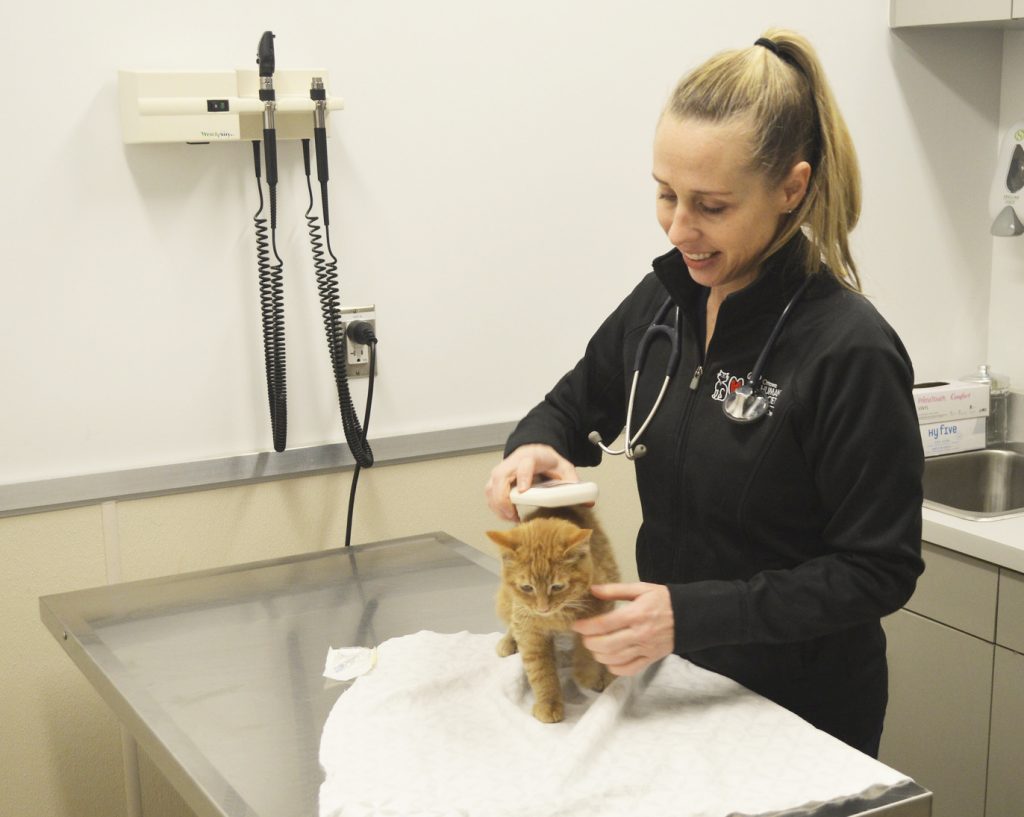August 15, 2019
A Plea for Chips: Micro, not Potato

You probably won’t be surprised that many of the animals that need the care of the Ottawa Humane Society are suffering. And I am sure you won’t be surprised that, too often, their suffering can be traced back to a human. The suffering may be because of something a human did: a cat allowed to roam eventually hit by a car, or a dog abused for not behaving as an owner expects. But more often, suffering is caused by something a human didn’t do: a cat never taken to a veterinarian and never vaccinated, or a dog left in a car on a hot day.
So, here at the OHS we are often left with our silent plea, “If only people would…”
One of my silent pleas is, “If only people would microchip their pets.” You see, despite our best efforts, only 60% of lost dogs at the OHS are returned to their families. For cats, it’s a measly 8%. Both numbers could be much, much higher if only people would identify their pets both visibly with a collar and tag, and permanently, with a microchip implant. The American Veterinary Medical Association tells us that a microchipped dog is more than twice as likely to be returned home and a cat, and astounding 20 times more likely.
Most of the animals come to us with neither a tag nor a microchip. And in the absence of a lost report to match with, we are left with the sad task of finding a new home for thousands of pets every year.
Microchip technology is excellent, but like most technologies, it is only as good as the user makes it. To ensure their effectiveness, we recommend chips be checked at least annually. This is as simple as asking your vet to wave the sensor wand above the chip to ensure the registration number is still readable. And to ensure that number can be traced back to you, it is essential that you keep your pet’s registration up-to-date. A microchip won’t help your pet get home if the information associated with it is so out-of-date that you are untraceable.
August 15th is Check the Chip Day—a reminder to all of us to not only microchip our pets, but also to ensure the chip is still functioning and traceable to you.
Bruce Roney
President and CEO
